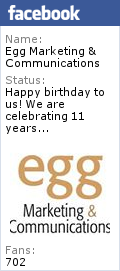This is a guest post by James Elliott.
Contrary to what many believe, great content does not simply speak for itself. Even if your content is amazing, and you publish regularly, this tactic alone will not be enough to get your brand noticed. Whilst any good marketer will be aware that content is king, many marketers forget that great content also needs to be promoted.
The Different Types of Media
According to BuzzStream, there are three different types of media; paid media, owned media and earned media. Put simply, these definitions refer to,
-
Media You Own
-
Media You Can Buy
-
Media Shared by Your Audience
Of all of these, earned media, or media that is organically shared by your audience, is the most valuable. But it is also the hardest to come by, and a good content promotion strategy should always involve all media types, rather than jut focusing on one. In fact, all three media types can be integrated into a comprehensive content promotion strategy, which utilizes the best features of each to gain the most exposure for your content.
Promoting Content on Social Media
Of all the platforms on which content can be promoted, social media is probably the most comprehensive and the most widely used, by both brands and consumers alike.
This immediately confers the distinct benefit of brands being able to promote content directly to an audience, and to more accurately drive content that would most appeal to their social media audience. In addition, social media incorporates all three media elements. Media you own can refer to your specific, branded page or account. Media can be bought on social media networks, in the form of sponsored or promoted posts. And users are able to very easily share content across social media networks with just one click of a button.
There are many tactics that you can use to promote your content on social media platforms. Just some of these great tactics include:
-
Crossing streams if someone likes you on Facebook, thank them on Twitter
-
Reciprocal Marketing sharing, re-tweeting and mentioning
-
Post Scheduling for maximum visibility and consistency
-
Use images and other multimedia to make your promotions more appealing
-
Create a Persona this will give your brand a voice with which to connect with your customers on a more personal level
-
Creative incentives for follows and shares for example, special offers, contents or access to exclusive content
Creating a Content Calendar
Creating an editorial content calendar will allow you to time the release of your content to coincide with important dates or events. It will also allow you to maintain consistency, both in terms of quality and volume.
There are many great content calendar apps and templates available to purchase and download online, which can also be integrated into your website or content management system. However if you don’t have the resources to do this, Google calendar is an easy, free resource that will allow you to keep track of your content, or alternatively an Excel spreadsheet would work just as well.
Promote Social Media Content On Your Website
In addition to promoting your website by creating social media content, you should also promote your social media channels on your website. Integrating one-click follow, share and like functions into your website will encourage users to subscribe to your brand updates without having to leave your site. This will increase the likelihood of their returning in the future.
Define Your Objectives and Achieve Your Goals
The most important part of promoting your content is to define your objectives. By doing so you will be more accurately able to identify how best to achieve your goals. Are you looking for new customers, trying to improve your brand reputation, or are you simply looking for better search rankings? Whatever your objectives, defining them in more detail will help you to create a plan for promoting your content in the right places, and to the right people.
James Elliot writes for international SEO company Ingenuity Digital.
Photo: Matt Biddulph via Compfight





Browse these next
Promoting content in social media can also help your SEO. When a link gets shared in social media it creates “social signals” which tell the search engines that the link is worth sharing and valuable to audience members.
Nick-
I absolutely agree. And Google +, especially, is coming up in search!
Susan